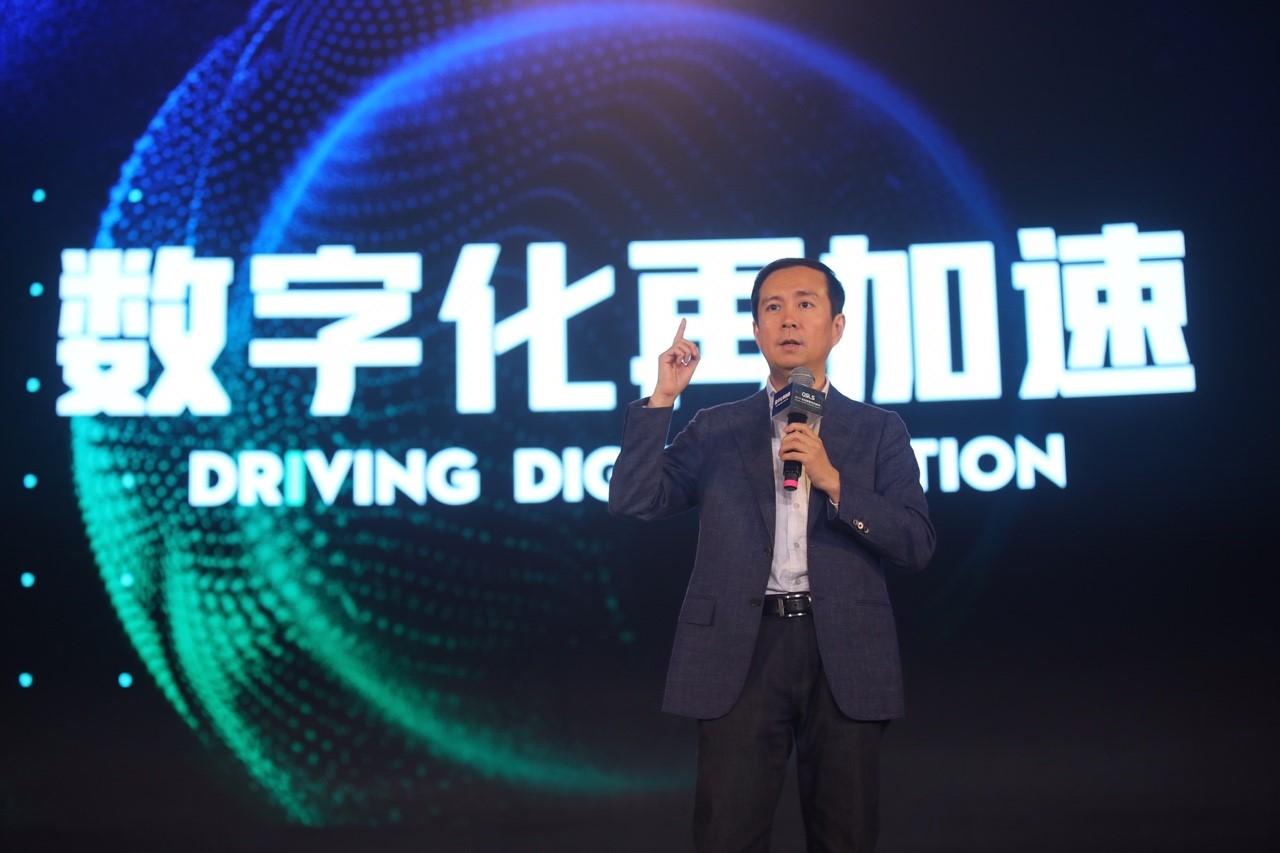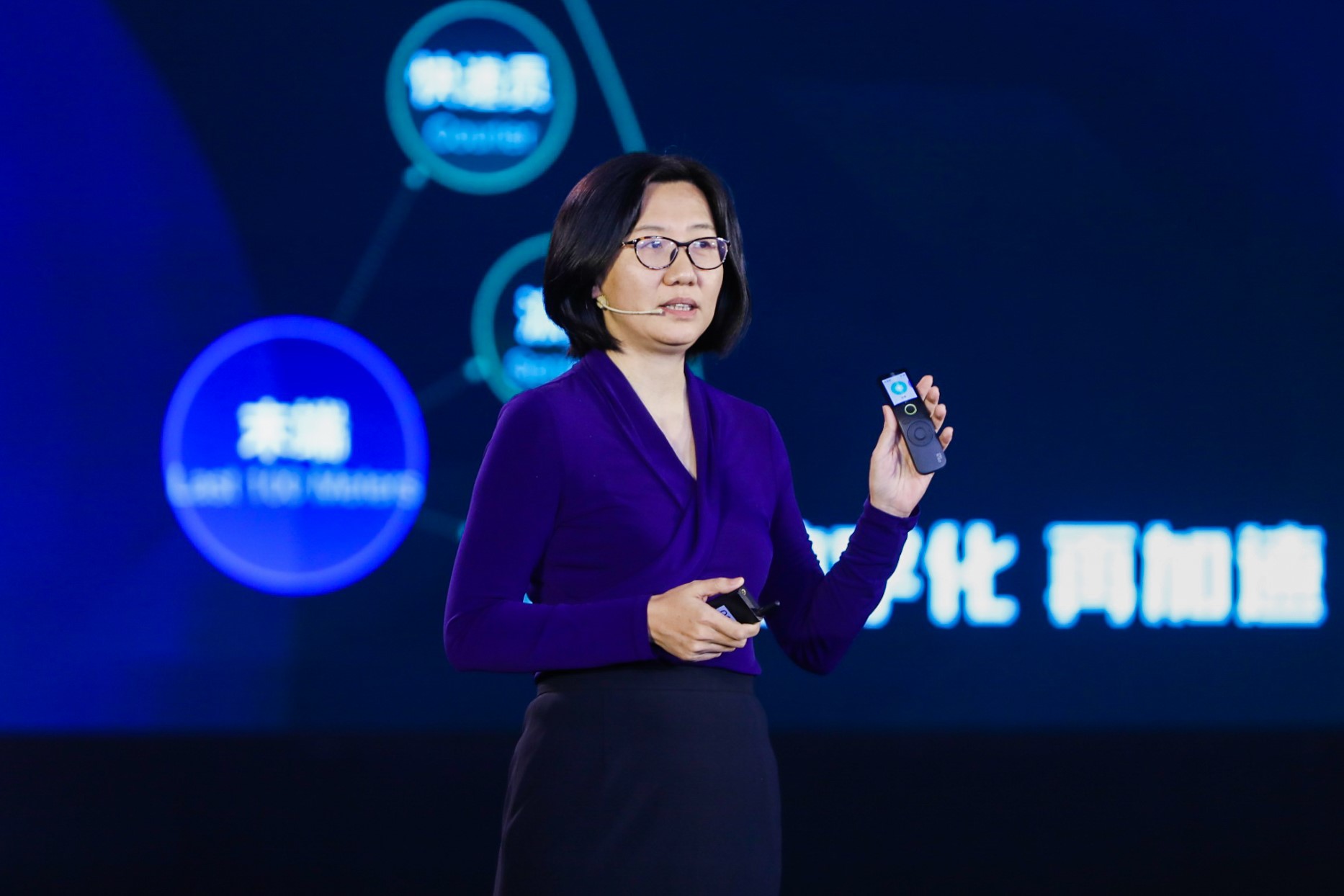"The future logistics must change from digitalization to digital
- The digital intelligence world will be an era we are
- together."
-- Daniel Zhang, CEO of Alibaba Group and the chairman of Cainiao Network

On May 28, the 2019 Global Smart Logistics Summit with the theme of "Digital Acceleration" was held in Hangzhou. At the summit, Daniel Zhang, CEO of Alibaba Group, proposed that the logistics industry is currently entering a comprehensive digital age, and digitalization is the initial and cornerstone of smart logistics. He believes that to maximize the efficiency of goods circulation, logistics must be highly integrated with supply chain management, which is an inevitable trend in the future. He said, "Only by achieving the comprehensive linkage between different enterprises in the entire industry chain and the data interconnection, can the overall end-to-end circulation efficiency become higher."
As a composite service industry integrating transportation, warehousing, freight forwarding, and information, the logistics industry is one of the fundamental and strategic industries supporting the development of the national economy. In recent years, with the upgrade of logistics technology, technologies, such as big data, cloud computing, IoT, blockchains, robots, and unmanned vehicles, have been applied in the logistics industry on a large scale. However, traditional logistics warehousing and distribution methods are still widely used. According to statistics, the volume of express delivery reached 50.5 billion pieces in 2018, and is expected to reach 60 billion pieces in 2019, up 20% year-on-year. Under the background of dramatic growth in the market scale, the transformation and upgrading of the logistics industry is unstoppable.
At the summit, Xuemei Gu, CTO of Cainiao Network, released the logistics IoT open platform and minimalist PDA, which can help achieve digital and intelligent upgrade of the entire logistics chain, such as warehousing, transportation, distribution, and station collection.

The logistics IoT open platform is jointly established by Cainiao, Alibaba Cloud, and the partners based on Digital Twin, AI, and IoT technologies. After the platform is connected, any logistics scenario can become a digital twin that can be intelligently scheduled, and logistics tasks are automatically planned by algorithms according to orders.
Minimalist PDA uses the AliOS Things for IoT operating system developed by Alibaba Cloud, which can be used for transportation management and product tracking real-time management to achieve real-time synchronization between digital twins and entities. Minimalist PDA has only six buttons. It is small and lightweight, easy to operate, and programmable. The price is only one tenth of that of similar products, and there are less usage restrictions.

The logistics IoT open platform will be fully open to the logistics industry. All logistics scenarios and devices are welcomed to access the platform. This opening-up measure is intended to clear away the financial and technical barriers for the logistics industry to move towards the IoT era, and create "an IoT that every company can afford", which will effectively promote the digitization and intellectualization of the logistics industry.
In the future, Cainiao will work with Alibaba Cloud and other partners to jointly promote the construction of the open platform. Xuemei Gu said, "Only by building this open platform can the IoT be expanded at low cost and on a large scale, improving the level of digitization and intellectualization, so that practitioners can have a better experience and consumers can enjoy better service."
Some insiders said that in the future, the logistics industry would go out of the form of competition relying solely on scale and price, and technology competition would become the key. The logistics cloud has become the infrastructure of the industry. Cainiao has established a logistics cloud since December 2015 to provide a stable and powerful public cloud platform for logistics ecosystem.
As an industry cloud, the basic architecture components of the logistics cloud are built on Alibaba Cloud. At the same time, most Alibaba Cloud product components are introduced through the logistics cloud portal, enabling partners to support their business development and drive data flow in a more secure and reliable industry.

From intelligent logistics to new retail, digital government, agriculture, environment, and finance, cloud computing is accelerating digital transformation of all industries. At present, Alibaba Cloud service has served more than half of China's A-share listed companies, 40% of China's top 500 companies, and 80% of China's new technology companies.
Previously, at the 2019 Alibaba Cloud Summit in Beijing, Jianfeng Zhang, the president of Alibaba Cloud Intelligence, elaborated on the "4-level rocket" of Alibaba Cloud strategic acceleration for the first time: DAMO Enhanced Cloud, Cloud for Data Intelligence, Cloud of Best Practices, and Cloud for Eco Partners. As the technical base of Alibaba economy, Alibaba Cloud is providing various industries with the core business capabilities and technical support needed in the digital age.
FashionAI: Revamping the Fashion and E-commerce Industry through Artificial Intelligence
DNN training for LibSVM-formatted data - From Keras to Estimator

2,593 posts | 792 followers
FollowApache Flink Community China - September 27, 2020
Alibaba Cloud Community - June 23, 2025
Alibaba Clouder - December 13, 2019
Alibaba Cloud Native Community - July 20, 2021
Alibaba Cloud Community - July 31, 2023
Alibaba Clouder - April 13, 2020

2,593 posts | 792 followers
Follow DataWorks
DataWorks
A secure environment for offline data development, with powerful Open APIs, to create an ecosystem for redevelopment.
Learn More MaxCompute
MaxCompute
Conduct large-scale data warehousing with MaxCompute
Learn More Image Search
Image Search
An intelligent image search service with product search and generic search features to help users resolve image search requests.
Learn MoreMore Posts by Alibaba Clouder